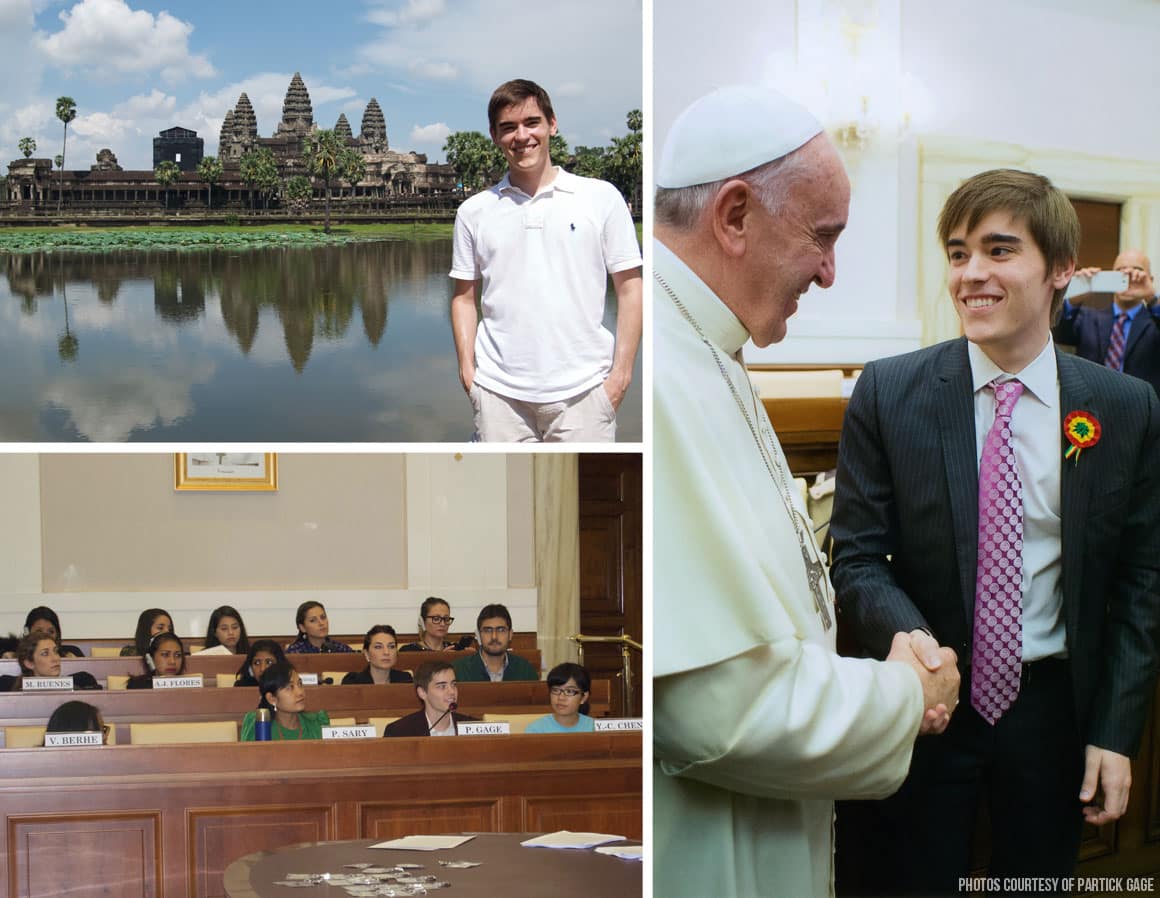By Melissa Jane Kronfeld & Megan Legband
A young but highly effective leader in the anti-slavery movement, Patrick Gage is a tireless Millennial advocate for those without a voice. Born in Minneapolis, Minnesota Patrick now works and studies in Washington, D.C., where he attends Georgetown University.
Patrick serves the anti-slavery community as a philanthropic champion of organizations including the Nomi Network, the Scalabrini International Migration Network and the Working Group on Human Trafficking and Modern Slavery at the Nexus Global Youth Summit. In his pursuit to promote sustainability and end trafficking, Patrick also works alongside anti-trafficking leaders like MAS Holdings, The World Childhood Foundation, and Thorn.
Patrick has spoken about human trafficking at prestigious conferences around the world, including the White House Conference on Next Generation Philanthropy, the Congressional Summit on Next Generation Leadership, and the Vatican Youth Symposium.
In addition to his work fighting for freedom, Patrick also played competitive ice hockey for 15 years, speaks fluent Portuguese, collects antique maps, and has three twin sisters.
Check out what happened when we caught up with Patrick to talk about the fight to #EndSlaveryNow!
What is one fact that every person should know about slavery?
Slavery exists only because we allow it to.
How did you first learn about modern slavery & what did you decide to do about it?
I first learned about modern slavery from my family, many of whom fight human trafficking in the United States and abroad. It wasn’t until Jonah Wittkamper introduced me to the Nexus Working Group on Human Trafficking and Modern Slavery, however, that I decided to raise my voice, focusing specifically on private sector reform.
What is the most critical obstacle preventing us from having a slave free world?
Apathetic consumers. At the end of the day, people still prioritize price over ethics. Retail giants thus feel little pressure to genuinely change how they do business, perpetuating cycles of poverty and abuse.
What is the most important lesson you have learned while fighting for freedom?
The private sector can do incredible good, so instead of attacking companies, we should help them. Fight with, not against.
Why do you believe the Millennial generation will be the one that can end slavery?
We have the technology to properly identify and quantify slavery, the resources to root it out, and a unique willingness to support ethical brands over their disgraced counterparts.
What does a slave free world look like to you?
In a slave free world, companies treat their workers with respect, consumers demand corporate integrity, and everyone lives as freely as possible.
What is one thing every reader can start doing right now to help end slavery?
Urge their domestic hotels of choice to advertise the National Human Trafficking Hotline (1-888-373-7888). Start the conversation at check-in and go from there.
Profiles In Abolition is an in-depth look at the influencers, innovators & thought leaders in the modern anti-slavery movement. An accompaniment to Millennial Magazine’s ongoing 10-part series exposing modern slavery – a project of the Nexus Global Youth Summit (read Part One here) – Profiles In Abolition will examine a diverse & inspiring array of advocates whose critical voice must be heard.
Want to learn more from the world’s leading luminaries in the fight to #EndSlaveryNow? Sign up for the Nexus Anti-Slavery Speaker Series, a weekly conference call with the men and women on the front lines of the modern abolition movement! This call is open to the public and everyone is welcome to listen in! Click here to register for free. Then learn more about modern slavery by following Nexus on Twitter, Instagram & Millennial Magazine!
Originally published on August 24, 2016

